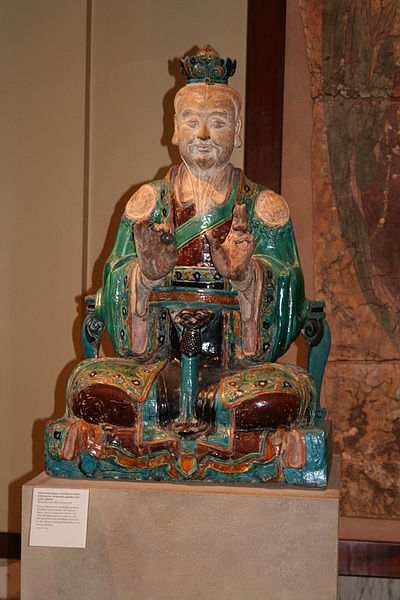Legalism (Chinese philosophy)
Fajia, often translated as Legalism, was a school of thought from classical Chinese philosophy. It represents several branches of thought of early thinkers mainly from the Warring States period, such as Guan Zhong, Li Kui, Shen Buhai, Shang Yang, Shen Dao, and Han Fei, whose reform ideas contributed greatly to the establishment of the bureaucratic Chinese empire. With an influence in the Qin, it formed into a school of thought in the Han dynasty. The Qin to Tang were more characterized by its tradition.
Statue of the legalist Shang Yang
Chinese philosophy originates in the Spring and Autumn period and Warring States period, during a period known as the "Hundred Schools of Thought", which was characterized by significant intellectual and cultural developments. Although much of Chinese philosophy begun in the Warring States period, elements of Chinese philosophy have existed for several thousand years. Some can be found in the I Ching, an ancient compendium of divination, which dates back to at least 672 BCE.
Yin and Yang symbol with the bagua symbols paved in a clearing outside of Nanning City, Guangxi province, China
Kong Fuzi (Latin: Confucius)
Chinese glazed stoneware statue of a Daoist deity, from the Ming dynasty, 16th century
The Sakyamuni Buddha, by artist Zhang Shengwen, 1173–1176 CE, Song dynasty





